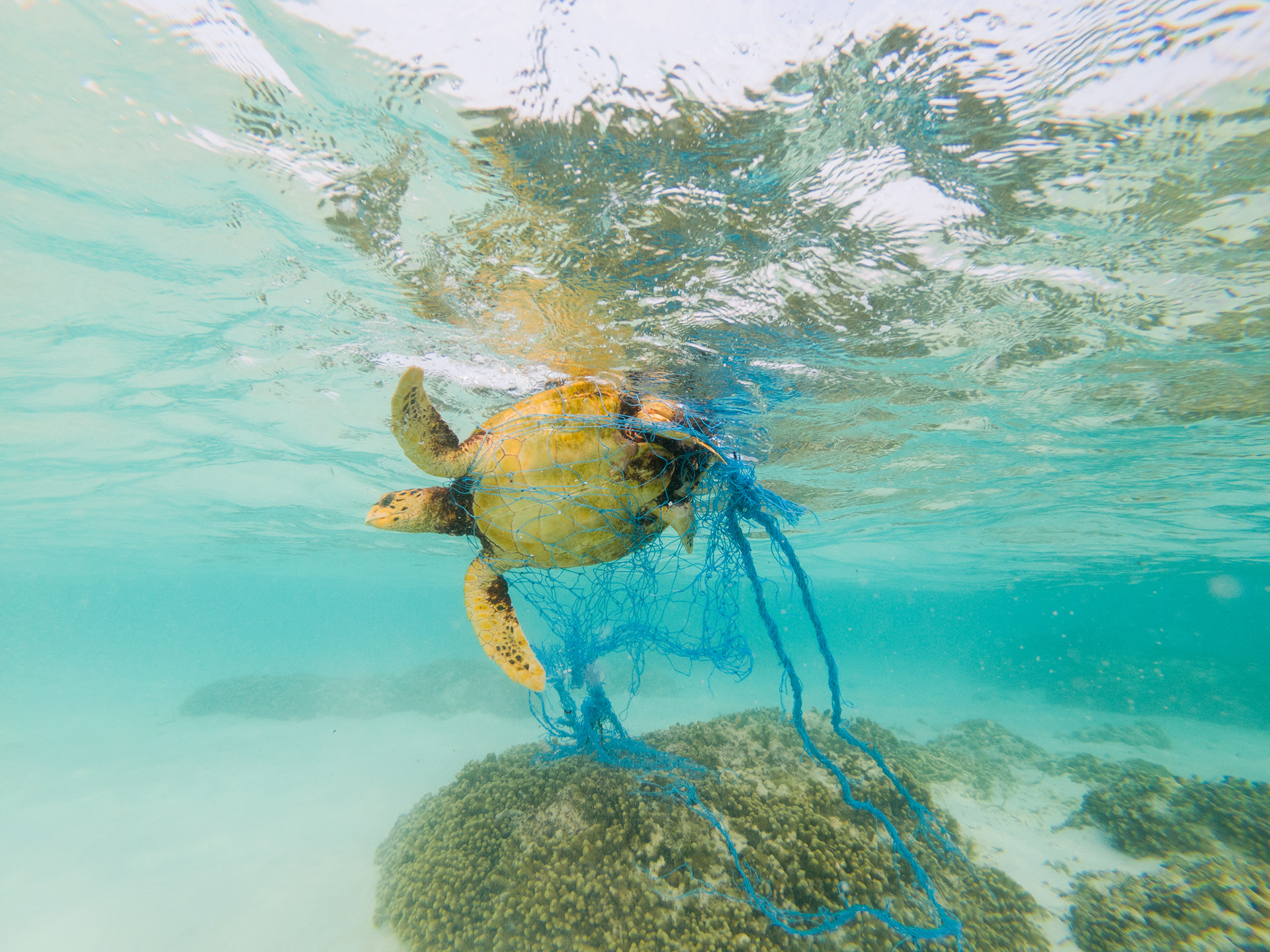Keeping our waterways and oceans clear of storm water pollution is everybody’s business. You can take steps to help whether you are doing housework or enjoying recreational activities on your free time. Fishing is a fun and popular pastime in Hawaii. However, when fishing materials are neglected on a massive scale, it can also pose a continuous threat to marine and shore life. ‘Ghost gear’ is forgotten, discarded, lost, or abandoned fishing equipment floating in a marine environment that continues to ‘fish’ marine life. Fishing responsibly is another way that you can help keep trash out of Hawaii’s oceans and shorelines.

‘Ghost fishing’ occurs when abandoned gear continues to fish, trap, or harm marine life even without harmful intent. Abandoned large nets used in mass scale fishing may cause entanglement, shading, and navigation disruption, which ultimately poses a threat to marine life. Additionally, abandoned gear adds to the growing problem of the ocean garbage patches and ocean pollution overall.
A few ways you can help to prevent ghost fishing are:
- Recycle older worn-out nets
- Track gear with electronic tags
- Use natural bait
- Fish in smaller, enclosed areas
- Hold a Reef Cleanup Event with your snorkeling and diving friends
- Report injured or entangled wildlife
To report a marine mammal in trouble (injured, stranded, or entangled whale, dolphin or seal) please call the NOAA Marine Mammal Hotline: 1-888-256-9840. Please report immediately and keep your distance, for your safety. Injured, sick or entangled animals can be unpredictable and dangerous. To report marine mammal disturbance or legal violation, please call the NOAA Office of Law Enforcement Hotline: 1-800-853-1964 and then call DLNR, Division of Conservation and Resources Enforcement (DOCARE) statewide hotline: 643-DLNR (3567).
To report or drop-off an injured bird, see the various rescue, response, and rehab organizations at https://dlnr.hawaii.gov/wildlife/downed-wildlife-contact-details/.
Sources: Storm Water Hawaii Resources, NOAA Ghost Fishing Facts, NOAA Marine Debris, DLNR Marine Mammals, DLNR Downed Wildlife

